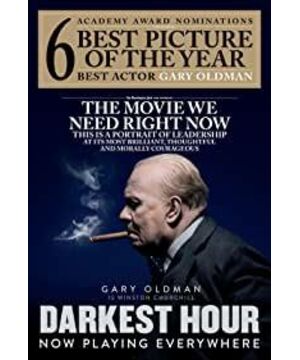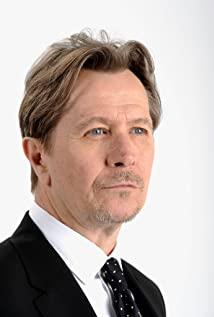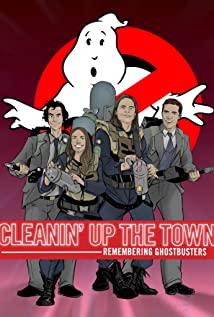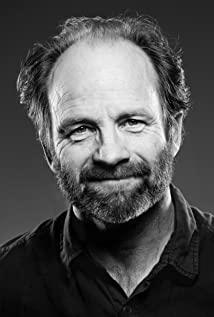"Darkest Hour" is pulled down a notch by the patriotism rendered by traditional techniques. The overwhelming praise made me terrified. When I first watched it, I knew that this was an Oscar seed. Maybe my expectations were too high.
The film is of high quality and classically framed, with 120 minutes of detailed recounting of events in a short interval. The arrangement of each scene fits the atmosphere of the times well, and each actor is also very immersive when viewed separately, but this does not prevent me from appearing again and again.
Since one of the highlights of this biography is Churchill's ruthless behavior, in contrast to the usual informal and cute side, the director's performance should be in line with this principle, but he is too hard, directly. Deprived the audience of all imagination. This is what the whole rant below is about.
Obviously, the camera focuses on Oldman's acting skills, and the nervous shaking, slurred speech, bloated body, and staggering steps of an old man over fifty years old are shown in a detailed close-up. At first glance in the bedroom, Churchill was immersed in his own world, and then his anger at the newly appointed secretary Layton, and the subsequent appearance at Buckingham Palace, Altman's sense of substitution successfully attracted the audience's perspective. However, the rest of the film tries to use this highlight to create a feeling, and the result is a protracted rhythm. Similar close-ups made me replay the trembling of his lips in my head for a week. I finally waited for the old man to pop out words one after another with difficulty. After listening to them, I was disappointed to find that most of the lines were emotional vents, so I kept going. I'm waiting for a reversal after the film, but his sincerity and greatness also disappointed me after the reversal.
Layton's emotional femininity represents the kind and weak side of human nature in the whole difficult decision-making process. The director uses her appearances from time to time to remind the audience of the cruelty of war. redundant. What really made me feel the plight was the moment when the soldier walked through the hospital full of groaning wounded and looked up. The audience got the message that 2,000 people would be sacrificed, and was shown the scene of the war. At the same time, they were reminded by Layton's tears and Churchill's constant trance. Can't they feel Churchill's state of mind? Personally, I still accept the handling method of "Captain Sully", which is restrained, calm, objective, and has a clear intention, but rarely instills emotions directly into the audience. Even if it needs to be clearly expressed, it is enough. When I said that I have been flying planes for decades, and they only judged me this time, the camera cut straight away, leaving room for the audience's own taste. In "Dunkirk", the old navy starts out as a ruthless officer who only obeys orders, and finally a scene left voluntarily can be the finishing touch.
With music at the end like Thor 3's final boss showdown, everyone was incited by Churchill's speech, and even his opponent decided to wave his handkerchief. Is it that Churchill's political enemies were moved by his patriotism and began to feel guilty about their selfishness? Did Churchill's insistence on war represent a wise choice? Does the voice of the people represent a wise choice? The screenwriter deliberately portrayed Chamberlain's faction as villains. Although their peace agreement was hidden under a conspiracy to impeach Churchill, must it be unpatriotic? Even if the final development of history proves this is the case, the screenwriter should fulfill the responsibility of the biopic and provide some theoretical background. In the wartime provisional cabinet, the whole meeting went down, as if Churchill's justice was suppressed by the united snobs, and his temper was also misunderstood as the "bad judgement" of the elderly, directly shaping the military strategist Churchill. Became the enthusiastic people in the mouth of his wife at first, and then to the image of ignorance and loyalty full of patriotism and opposition to dictatorship. If that's the greatness the film wants to highlight, it's a little too bland.
As above, a film of this level could have been made a little higher. In the second half of the performance, I started to get tired of aesthetics and made plays again and again. The director with strong expressiveness and the actors with superb performance, every frame is full of It's the point, I really can't bear such a strong push of information. The dialogue in "The King's Speech" is brisk and informative, but the intense expression of "Darkest Hour" determines that the control of the entire atmosphere needs to be more cautious. However, according to different acceptability, this traditional expression may not necessarily hit the wall everywhere.
View more about Darkest Hour reviews











